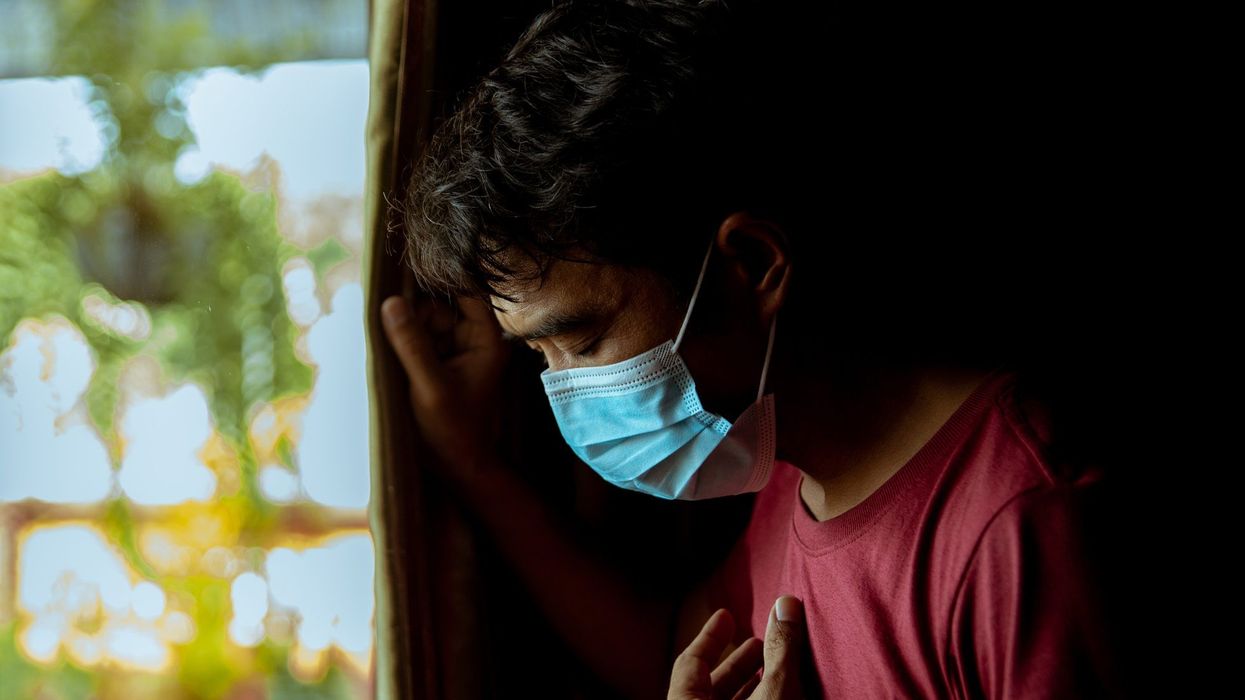A recent study has discovered that long Covid may be attributed to an immune inflammatory reaction, not directed against covid-19 itself, but rather triggered by a common, harmless, dormant "bystander" virus found in the body.
This reaction leads to a cytokine storm, resulting in the persistence of long Covid symptoms.
By examining blood samples from Covid patients, researchers observed that three months after hospitalisation for severe infection, there was no significant surge in immune cells targeting SARS-CoV-2.
However, there was an evident increase in immune cells targeting the dormant Cytomegalovirus (CMV), which is present in the body.
This finding suggests that the immune response to the dormant CMV may play a role in the development of long Covid symptoms.
CMV, a virus that typically poses no significant harm but can persist in the body after infection, has been found to have potential relevance in understanding the prolonged inflammation experienced by severe Covid patients at three months post-infection.
The study suggests that this sustained inflammation may not be primarily caused by SARS-CoV-2 itself, but rather be "bystander driven" in nature.
"Long Covid occurs in one out of ten Covid-19 cases, but we still don't understand what causes it. Several theories proposed include whether it might be triggered by an inflammatory immune response towards the virus that is still persisting in our body, sending our immune system into overdrive or the reactivation of latent viruses such as human cytomegalovirus (CMV) and Epstein Barr virus (EBV)," Laura Rivino, senior lecturer at the University of Bristol, UK, and the study's lead author, said.
The researchers analysed blood samples of 63 patients hospitalised for mild, moderate or severe Covid-19 infection at the start of the pandemic when vaccines were not available.
The study also found patients with severe Covid-19 to display a higher number of long Covid symptoms compared to mild and moderate patients, even as the team's analysis revealed no direct association between long Covid symptoms and Covid-related immune inflammatory responses.
Further, 79 per cent of all the patients reported at least one ongoing long Covid symptom with breathlessness and excessive fatigue being the most common, the study published in the journal eLife said.
An examination of immune profiles in severe Covid patients at the three-month mark revealed notable immune dysfunction, suggesting the possibility of persistent inflammation even after months of recovery.
However, the study also indicated that the inflammation in these patients tends to resolve gradually over time.
After 12 months, the researchers observed that both the immune profiles and inflammatory levels of severe patients were comparable to those of individuals with mild and moderate disease.
"Our findings suggest that prolonged immune activation and long Covid may correlate independently with severe Covid-19. Larger studies should be conducted looking at both a larger number of patients, including if possible vaccinated and non-vaccinated Covid-19 patients, and measuring a larger range of markers and cytokines.
"Understanding whether inflammation and immune activation associate with long Covid would allow us to understand whether targeting these factors may be a useful therapy for this debilitating condition," Rivino said.
(PTI)




